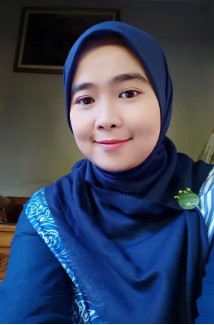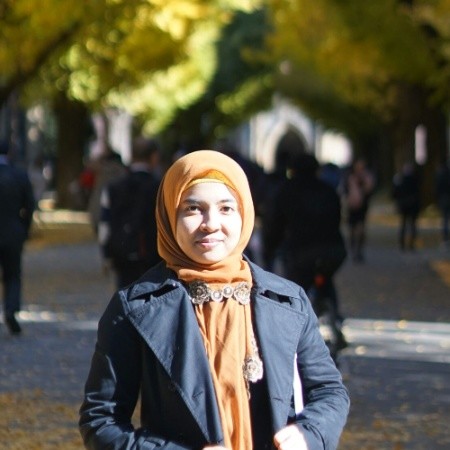EDUCATION AND TRAINING REGARDING MENSTRUAL HYGIENE MANAGEMENT (MHM) AS AN EFFORT TO CARE REPRODUCTIVE ORGANS IN ADOLESCENT
Downloads
Introduction: According to the Indonesian Demographic and Health Survey (IDHS) in 2017, young women (63.9%) in maintaining cleanliness during menstruation are still lacking due to low knowledge and information about personal hygiene during menstruation. SMP Negeri 1 Sampit is located in Central Kalimantan where most of the students do not have knowledge about menstrual hygiene management.
Methods: The activities used in this community service program were in the form of health education to 120 students of 7th and 8th grades. The community service events carried out through this webinar include opening, pretest, giving material, and closing with a post test. The pretest was carried out before giving the material to determine the participant's initial understanding of menstrual hygine management.
Results: Knowledge related to adolescent growth and development scored well as many as 19 people (15.83%) then during the good posttest it became 63 people (52.50%). Knowledge related to menstrual hygiene management during the pretest who got a good score was only 20 people (16.67%) and 72 people (60%) good in posttest. While the knowledge related to mood disorders in adolescents who got a good score at the pretest was 21 (17.5%) and 70 people (58.3%) had a good score in posttest.
Conclusion: Community service activities conducted in the form of online webinars to provide health education and modules to teachers can improve knowledge and practice of menstrual hygiene management as an early effort in maintaining and caring for the health of the female reproductive organs.
Agiwahyuanto, F. (2018) ‘Gambaran Tingkat Pengetahuan Praktik Vulva Hygiene Saat Menstruasi Pada Siswa Kelas Viii Smp Negeri 25 Semarang Tahun Pelajaran 2017-2018', Jurnal Visikes, 17(1), pp. 127–135.
Febriyanti, E. (2017) ‘Perilaku Perineal Hygiene Saat Menstruasi Pada Remaja Awal', Undergraduate Thesis, Diponegoro University.
Green & Kreuter (1991) Health Program Planning: An Educational and Ecological Approach. New York: New York : McGraw Hill Higher Education.
Hennegan, J. and Montgomery, P. (2016) ‘Do menstrual hygiene management interventions improve education and psychosocial outcomes for women and girls in low and middle income countries? A systematic review', PLoS ONE, 11(2), pp. 1–21. doi: 10.1371/journal.pone.0146985.
Kathryn Geldard & David Geldard (2011) Konseling Remaja (Pendekatan Proaktif untuk Anak Muda Edisi Ketiga) Cetakan ke-1. Yogyakarta: PustakaPelajar.
Kaur, R., Kaur, K. and Kaur, R. (2018) ‘Menstrual Hygiene, Management, and Waste Disposal: Practices and Challenges Faced by Girls/Women of Developing Countries', Journal of Environmental and Public Health, 2018. doi: 10.1155/2018/1730964.
Kemenkes RI (2017) Manajemen Kebersihan Menstruasi Perlu Dipahami.
Notoatmodjo, S. (2012) ‘Promosi kesehatan dan perilaku kesehatan.' Jakarta: Rineka Cipta.
Nurjan, S. (2016) Psikologi Belajar Edisi Revisi.
Syahda, S. and Elmayasari (2020) ‘Hubungan Pengetahuan Dan Peran Orang Tua (Ibu) Dengan Perilaku Personal Hygiene Saat Menstruasi Di Smpn 2 Ukui Kabupaten Pelalawan', Jurnal Doppler, 4(1), pp. 1–9.
Copyright (c) 2022 Jurnal Pengabdian Masyarakat Dalam Kesehatan

This work is licensed under a Creative Commons Attribution 4.0 International License.
Authors who publish with Jurnal Pengabdian Masyarakat dalam Kesehatan agree to the following terms:
The journal allows the author to hold the copyright of the article without restrictions.
The journal allows the author(s) to retain publishing rights without restrictions
The legal formal aspect of journal publication accessibility refers to Creative Commons Attribution (CC BY).
Authors retain copyright and grant Jurnal Pengabdian Masyarakat dalam Kesehatan the right of first publication with the work simultaneously licensed under a Creative Commons Attribution 4.0 International License that allows others to remix, adapt and build upon the work with an acknowledgment of the work's authorship and of the initial publication in Jurnal Pengabdian Masyarakat dalam Kesehatan.
- Authors are permitted to copy and redistribute the journal's published version of the work (e.g., post it to an institutional repository or publish it in a book), with an acknowledgment of its initial publication in Jurnal Pengabdian Masyarakat dalam Kesehatan.
Jurnal Pengabdian Masyarakat dalam Kesehatan requires a formal written declaration and transfer of copyright from the author(s) for each article published. We, therefore, ask you to complete and return this form, retaining a copy for your own records. Your cooperation is essential and appreciated. Any delay will result in a delay in publication.

JPMK by Unair is licensed under a Creative Commons Attribution 4.0 International License.










